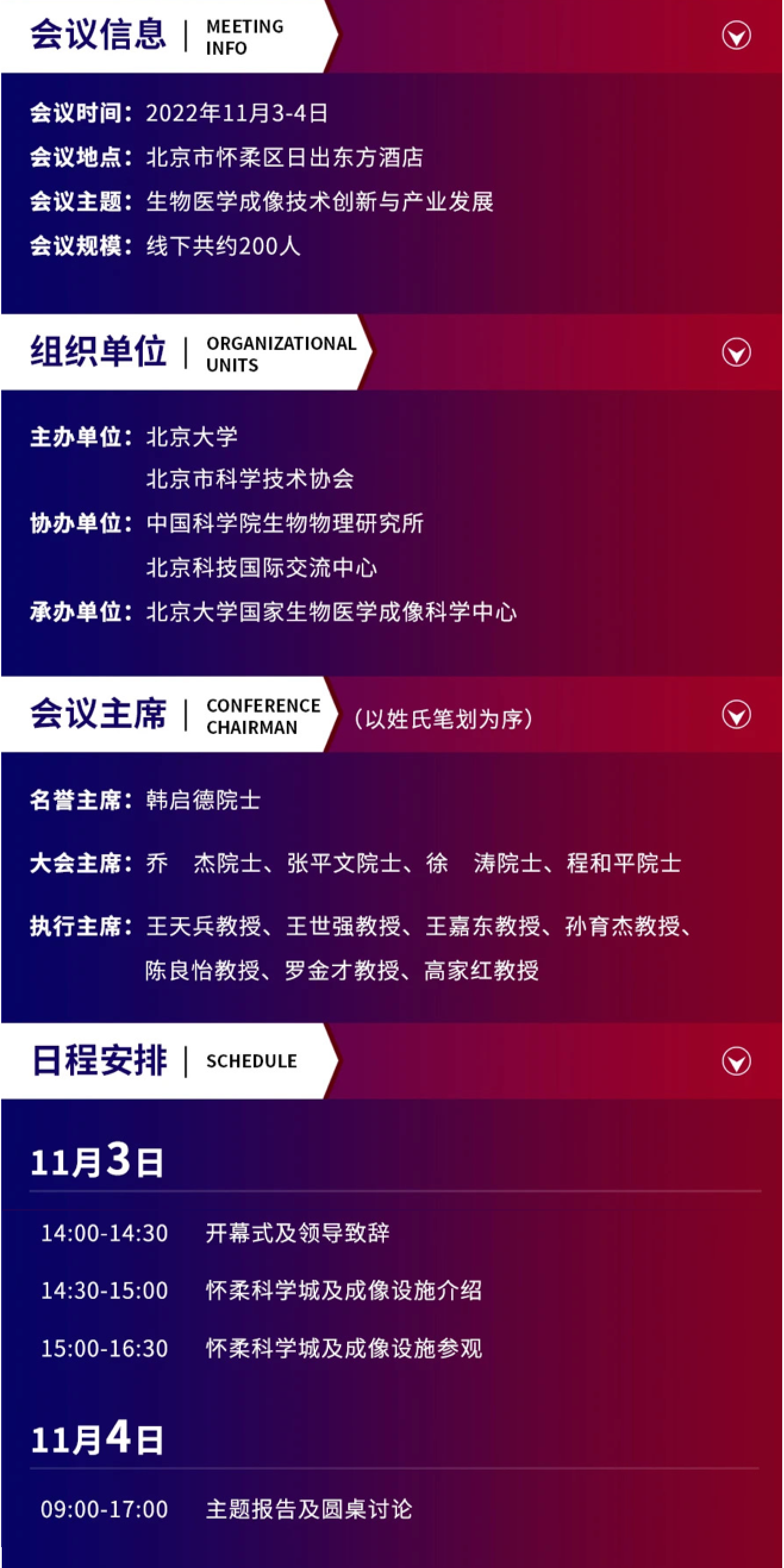The 2nd "Huairou Forum" Innovation in Biomedical Imaging Technology and Industrial Development
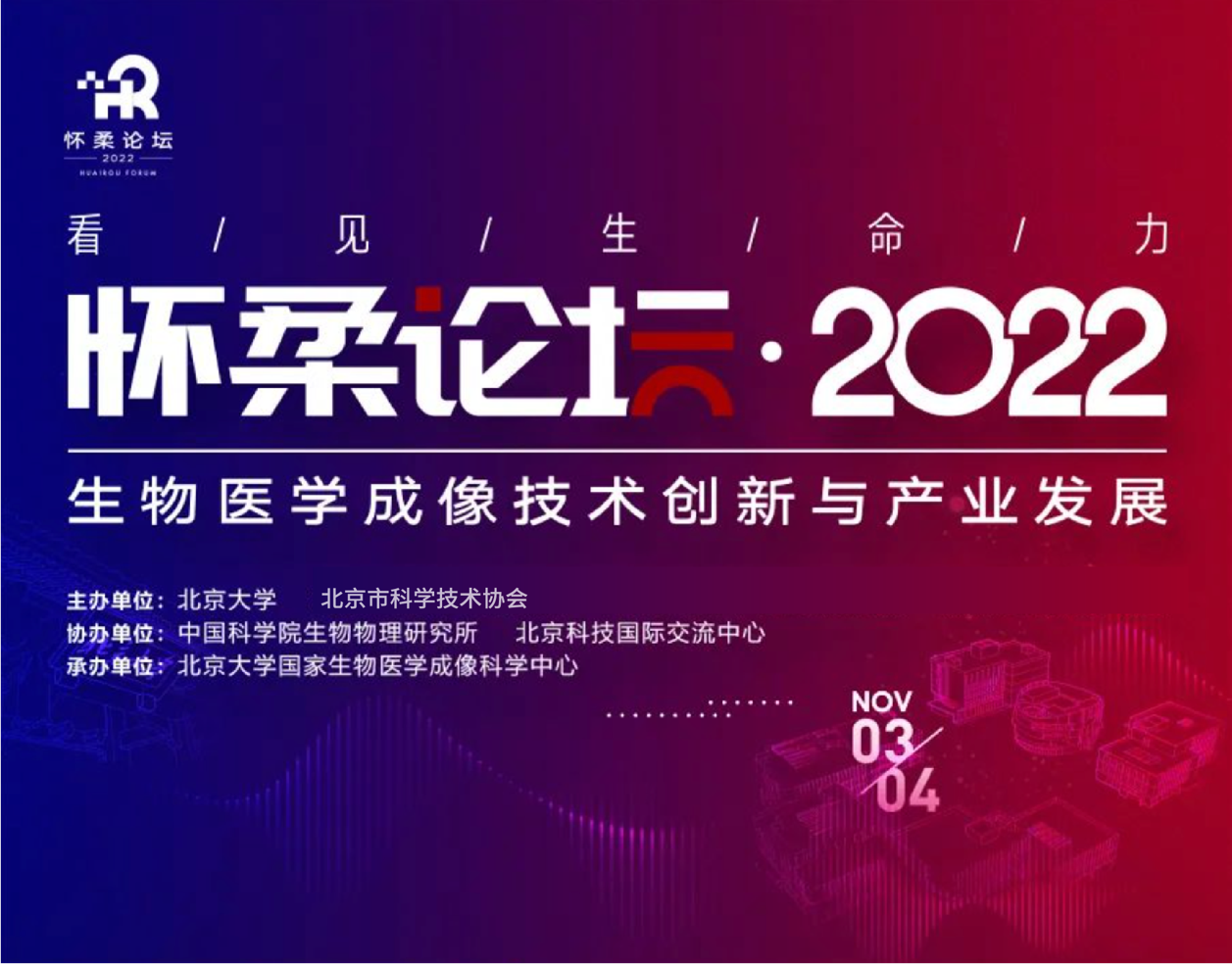
On the afternoon of November 3rd, the opening ceremony of the second "Huairou Forum," jointly organized by Peking University and the Beijing Municipal Association for Science and Technology, took place at the Sunrise East Hotel in Huairou District.
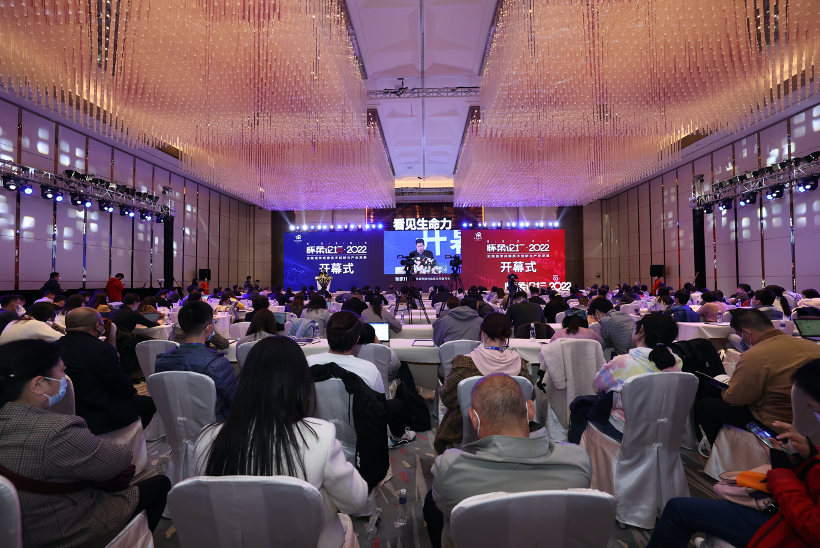
The Second Huairou Forum Opened
To fully leverage the role of multi-modal, cross-scale biomedical imaging facilities as a national demonstration and guiding force, to establish a platform for exchange and cooperation, and to bring together wisdom and strength, Peking University and other institutions established the "Huairou Forum" in October 2021. The theme of the second "Huairou Forum" is "Innovation in Biomedical Technology and Industrial Development," co-hosted by Peking University and the Beijing Municipal Association for Science and Technology, with the cooperation of the Institute of Biophysics, Chinese Academy of Sciences, and the Beijing International Exchange Center for Science and Technology. The National Biomedical Imaging Center (NBIC) of Peking University is responsible for organizing the event.
Notable attendees at the forum's opening ceremony included Vice Chairman of the National Committee of the Chinese People's Political Consultative Conference, Academician Wang Zhizhen; Peking University Party Committee Member and Executive Vice President, Academician Qiao Jie; Academician Yan Xiyun from the Institute of Biophysics, Chinese Academy of Sciences; Academician Zhao Jizong from the Temple of Heaven Hospital; Deputy Director Zhang Guohui from the Ministry of Education's Department of Science, Technology, and Informationization; Party Secretary Shen Jie from the Beijing Municipal Association for Science and Technology; Deputy Director Liu Zhenfeng from the Institute of Biophysics, Chinese Academy of Sciences; Chief Editor and Deputy President Li Bin from Xinhua News Agency's Beijing Branch; Sun Xiaofeng, Member of the Standing Committee of Huairou District Committee and Minister of the Organization Department; Ding Mingda, Member of the Party Working Committee of Huairou Science City and Deputy Director of the Administrative Committee; Yang Haotian, Vice Chairman of the Huairou District Committee of the Chinese People's Political Consultative Conference and Director of the Innovation Service Office of the Administrative Committee; Kong Jian, Deputy Director of the High-Tech Department of the Beijing Municipal Development and Reform Commission; Zhang Dongchen, Vice President of Baidu Group; Yang Zhigang, General Manager and Party Secretary of NCS Testing Technology; Wu Chen, Chief Architect of Beijing Institute of Architectural Design, and Academician Cheng Heping, Chief Scientist of Imaging Facilities and Director of NBIC, among others. The forum's opening ceremony was presided over by Academician Zhang Pingwen, Member of the Party Committee and Vice President of Peking University, and the General Commander of Imaging Facilities.
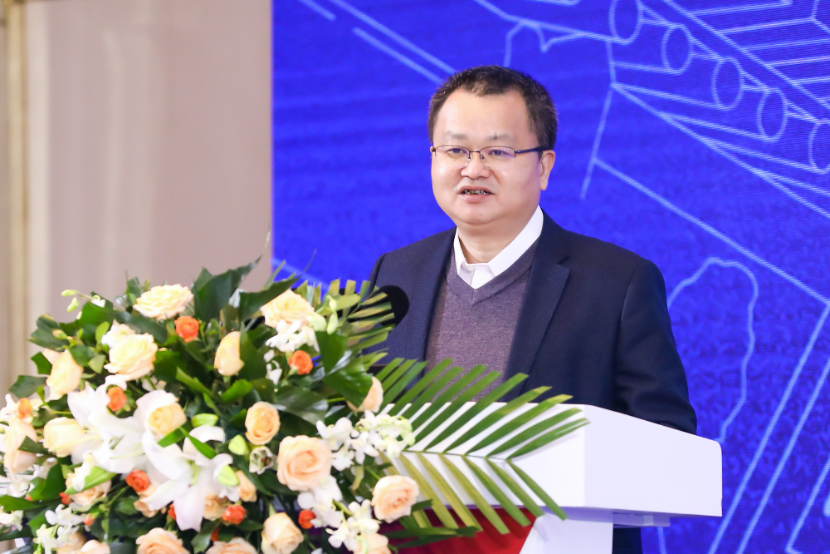
Zhang Pingwen Presided Over the Opening Ceremony of the Forum
In her speech, Wang Zhizhen combined several "little stories" from her decades of research experience to illustrate the dramatic changes in China's research conditions. Her anecdotes deeply moved and inspired the young representatives present. Laboratories had limited equipment in the 1970s and 1980s, and booking time for experiments often took a week or even ten days. In the 1990s, larger instruments were introduced, and shared platforms were established, fundamentally improving research conditions and efficiency. During the 13th Five-Year Plan, China began constructing major scientific facilities. From a lack of essential equipment to current ability to build major scientific facilities independently, Wang Zhizhen felt immensely proud of the advancement in research conditions and equipment manufacturing capabilities in her homeland. She encouraged the young scientists present to cherish the good times of this new era and take up the important responsibility of the great rejuvenation of the Chinese nation.
Wang Zhizhen emphasized that imaging facilities can attract talent, unite teams, and unleash the vitality of research equipment, making significant contributions to China's technological innovation. She praised initiatives such as the nationwide call for early bird projects, constructing science art museums, the enhancement of science education for primary and middle school students, and the creation of a scientific research atmosphere that combines innovative thinking with art and culture. Wang Zhizhen stressed that these large imaging facilities belong to the nation and to the nation and should have a have a global impact. She hoped that amidst the comprehensive and high-quality development of the country, they would remain open and, in that openness, inherit and showcase the excellence of Chinese culture. These facilities should serve as a prominent symbol and attractive window reflecting the policy of "China's doors will only open wider," allowing more foreign scientists to experience advanced, innovative, friendly, warm, convenient, and thoughtful research opportunities in China, genuinely feeling that "I am conducting research in China."
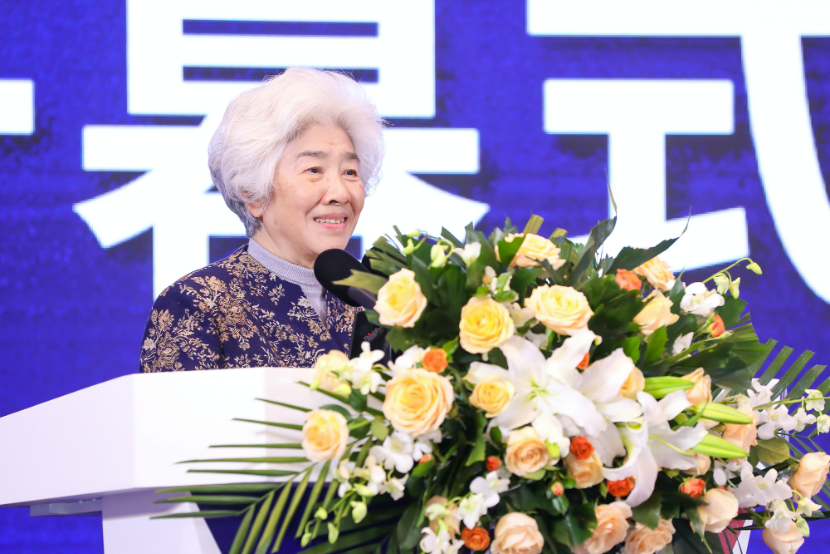
Academician Wang Zhizhen Addressed
On behalf of Peking University, Qiao Jie extends congratulations for the convening of the forum and expresses gratitude to all the leaders, guests, experts, and scholars in attendance. She emphasizes that the Second "Huairou Forum," held as scheduled, is a concrete measure in line with the university's commitment to the "Four Orientations" and the original aspiration of serving the country through science and technology, aligning with the spirit of the 20th National Party Congress. As Peking University continues its journey to become a world-class university with Chinese characteristics, it will steadfastly implement the strategies of strengthening the nation through science, education, and talent development, consistently promoting high-quality, comprehensive, and content-driven development across all aspects of the university's endeavors. Peking University is determined to make new contributions to serving the country's primary strategic needs and the development of the capital city. Qiao Jie underscores the importance of effectively leveraging large-scale facilities as engines and organizing the Huairou Forum. The forum will serve as a bridge and link for scientific innovation exchange, showcasing the charm and vitality of the forum through technological prowess. Technological innovation will empower talent cultivation, academic development, and industrial growth. Through in-depth discussions and exchanges, the aim is to foster more "from 0 to 1" original innovations and make significant contributions to achieving high-level technological self-reliance and advancement.
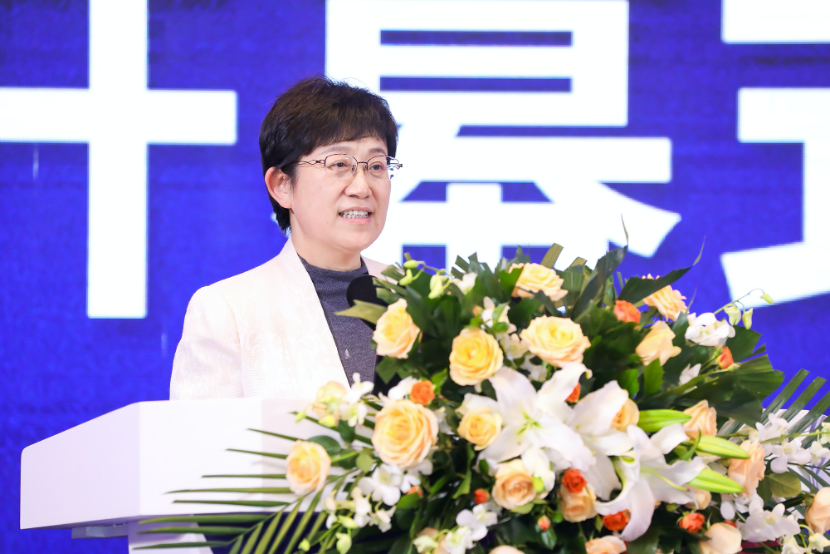
Qiao Jie Addressed
Zhang Guohui stated that Peking University had provided an exemplary experience for constructing large-scale scientific facilities in universities. Peking University's responsibility for the construction of imaging facilities not only ranks among the top in the engineering progress of the national "13th Five-Year Plan" major science and technology infrastructure projects but also, relying on the synchronized establishment of NBIC, has accelerated the development of process equipment, cultivated and gathered technological innovation and cutting-edge research talent, and conducted scientific research. At the same time, they actively organized the Huairou Forum, which laid a solid foundation for better utilizing the imaging facility's capabilities and achieving significant original results. Zhang hopes that the imaging facilities will continue to adhere to high-quality development, support high-level technological self-reliance, maintain high standards, contribute to constructing world-class talent centers and innovation hubs, and fully play an essential role in promoting university scientific innovation and the "Double First-Class" initiative. This, in turn, will contribute more to the early realization of an education-strong, technology-strong, and talent-strong nation and the comprehensive construction of a socialist modernized country.
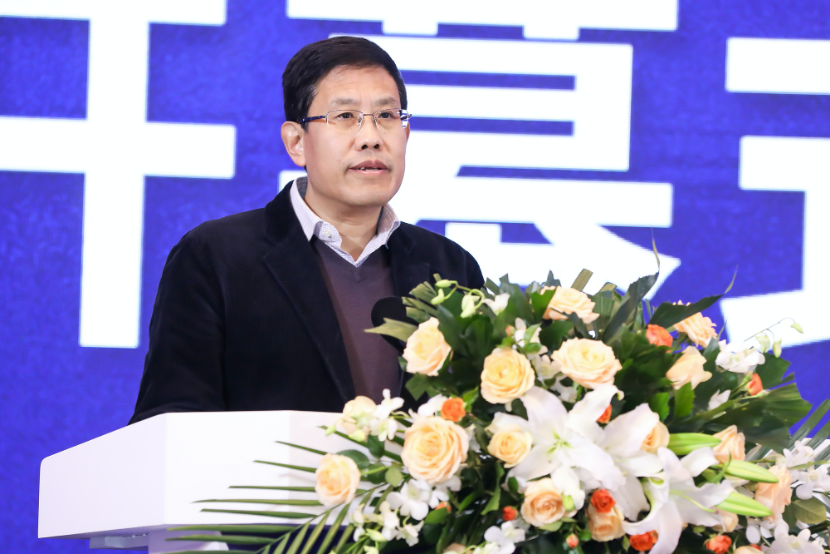
Zhang Guohui Addressed
Shen Jie expressed that the Science Association, as a crucial force driving the development of technological innovation, serves as a bridge and link between science and technology professionals. Beijing Science Association is actively working to establish a welcoming, trustworthy, dynamic, and results-oriented home for technology professionals. They will further strengthen their close collaboration with institutions like Peking University, research institutes, and technology enterprises to organize high-level international academic conferences jointly. This forum marks the third time the Municipal Science Association's "Innovation Link" brand activity has come to Huairou. In the future, they plan to deepen their strategic cooperation with Huairou District. They aim to establish an Academician and Expert Service Center in Huairou District, connect with high-quality technology resources from both domestic and international sources, and work together to create a world-class hub for original innovation. This will contribute significantly to the construction of Beijing's Huairou Comprehensive National Science Center and provide greater support for the development of an international technology innovation center and high-level self-reliant technology.
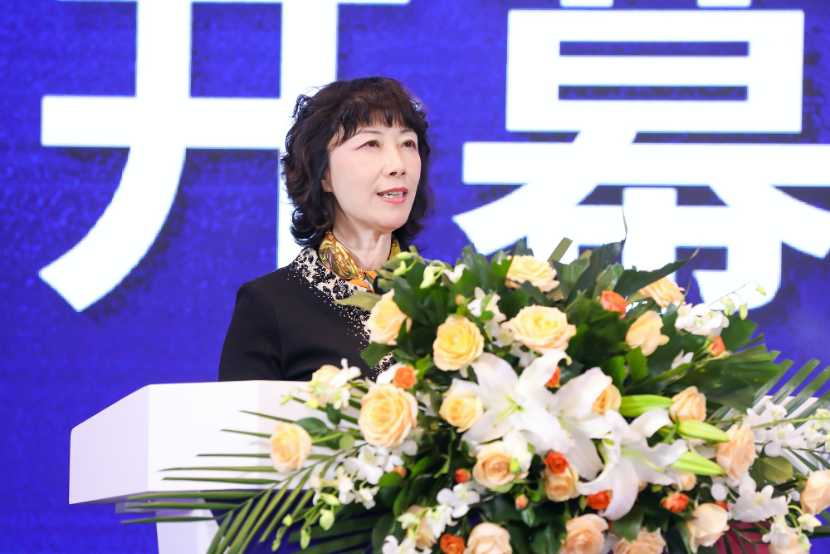
Shen Jie Addressed
Professor Stefan Hell, one of the pioneers of super-resolution imaging technology and the 2014 Nobel Prize laureate in Chemistry, sent a video message on behalf of Max Planck Institute for the Advancement of Science in Germany (abbreviated as "MPIAS"). He congratulated the establishment of imaging facilities and the convening of the forum, looking forward to the prompt utilization of these imaging facilities. He and his team will continue to collaborate and share knowledge with NBIC.
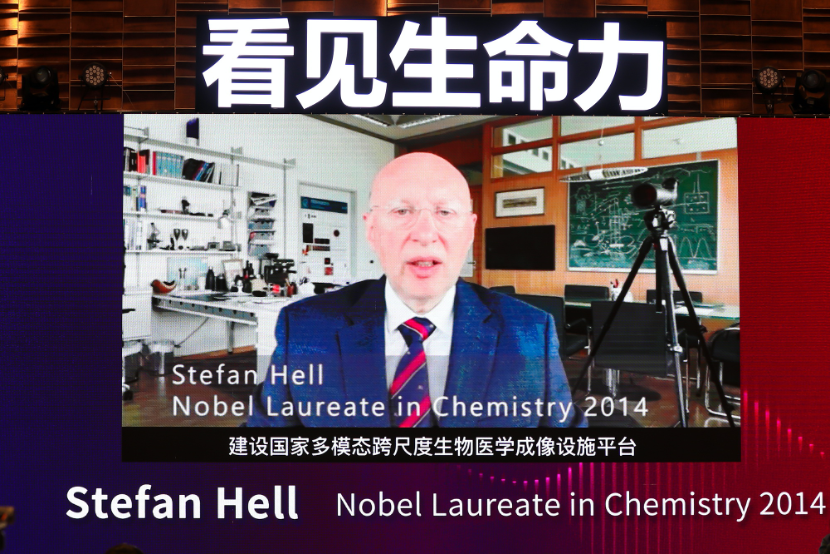
Stefan Hell Addressed
Ding Mingda, representing the Huairou District Committee and District Government, extended congratulations on convening the forum. He provided a detailed introduction to the basic situation, development goals, and specific construction and operation of scientific facilities in Huairou Science City. He hopes to fully leverage large scientific facilities' leading and demonstrative role and the forum's role as a link for scientific and technological exchange and cooperation. The focus should be on innovation in principles and fundamental breakthroughs, contributing to resolving challenging issues in China's biomedical field.
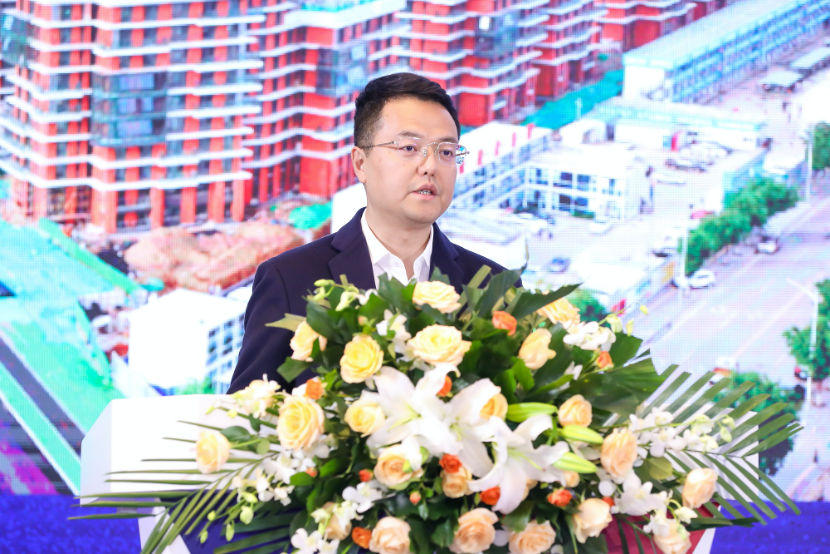
Ding Mingda Addressed
Professor Sun Yujie, Deputy Chief Engineer of the Multi-mode Trans-scale Biomedical Imaging Facility and Deputy Director of NBIC, introduced the construction details of the imaging facility and related equipment. He emphasized the need to actively engage in "big science" research and talent development using the imaging facility, to promote the development of imaging informatics discipline, and to create an innovative ecosystem in the field of biomedical science and technology, thereby contributing to the nation's high-quality development through technological innovation.
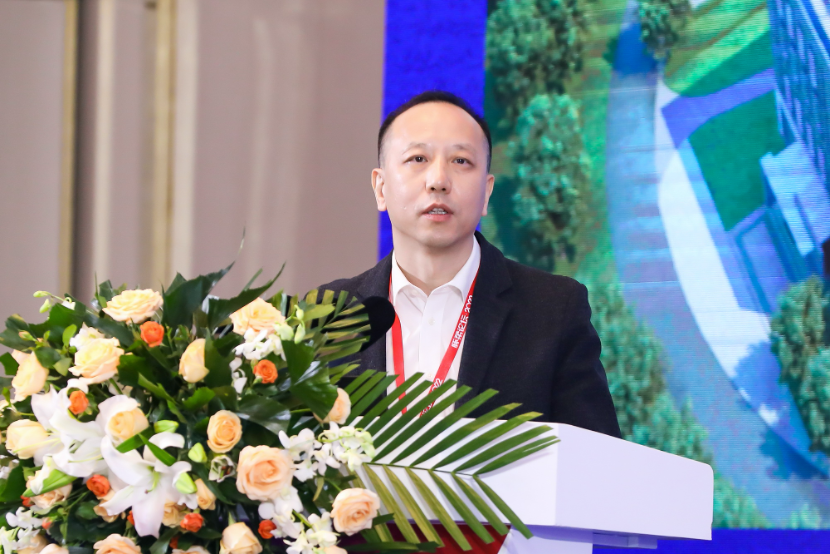
Sun Yujie Introduced Imaging Facilities
During the forum's main science section, more than ten esteemed academicians and experts, including Academician Jiang Baoguo, Academician Fang Jiancheng, Academician Lu Lin, and Academician Jacques Souquet of the French Academy of Sciences, delivered keynote speeches, sharing the cutting-edge scientific advancements and latest research findings. Academician Zhao Jizong, Professor Chen Liangyi, and Professor Sun Yujie chaired three roundtable sessions, inviting scientists, clinical doctors, and entrepreneurs to engage in high-level discussions, showcasing expert insights and fostering collaborative development. Additionally, Professor Qiu Zhijie, the Dean of the School of Experimental Art at the Central Academy of Fine Arts, was invited to deliver a thematic presentation on the fusion of technology and art, demonstrating the beauty of technology integration.
In line with the strategy for driving innovation and development, this forum, supported by advanced biomedical imaging facilities, aims to explore frontiers in the field of life and health sciences, facilitate the exchange of crucial core technologies, enhance the original innovation capacity of China's biomedical imaging technology, promote the industrial development of high-end biomedical imaging equipment, and contribute to the construction of a technologically strong nation.
Experts and representatives from relevant departments and faculties of Peking University attended the forum's opening ceremony. This conference was conducted in a hybrid format, combining both online and offline components, with over 200 experts and scholars from research institutions, medical facilities, and businesses participating in the forum.
Meeting Agenda:
